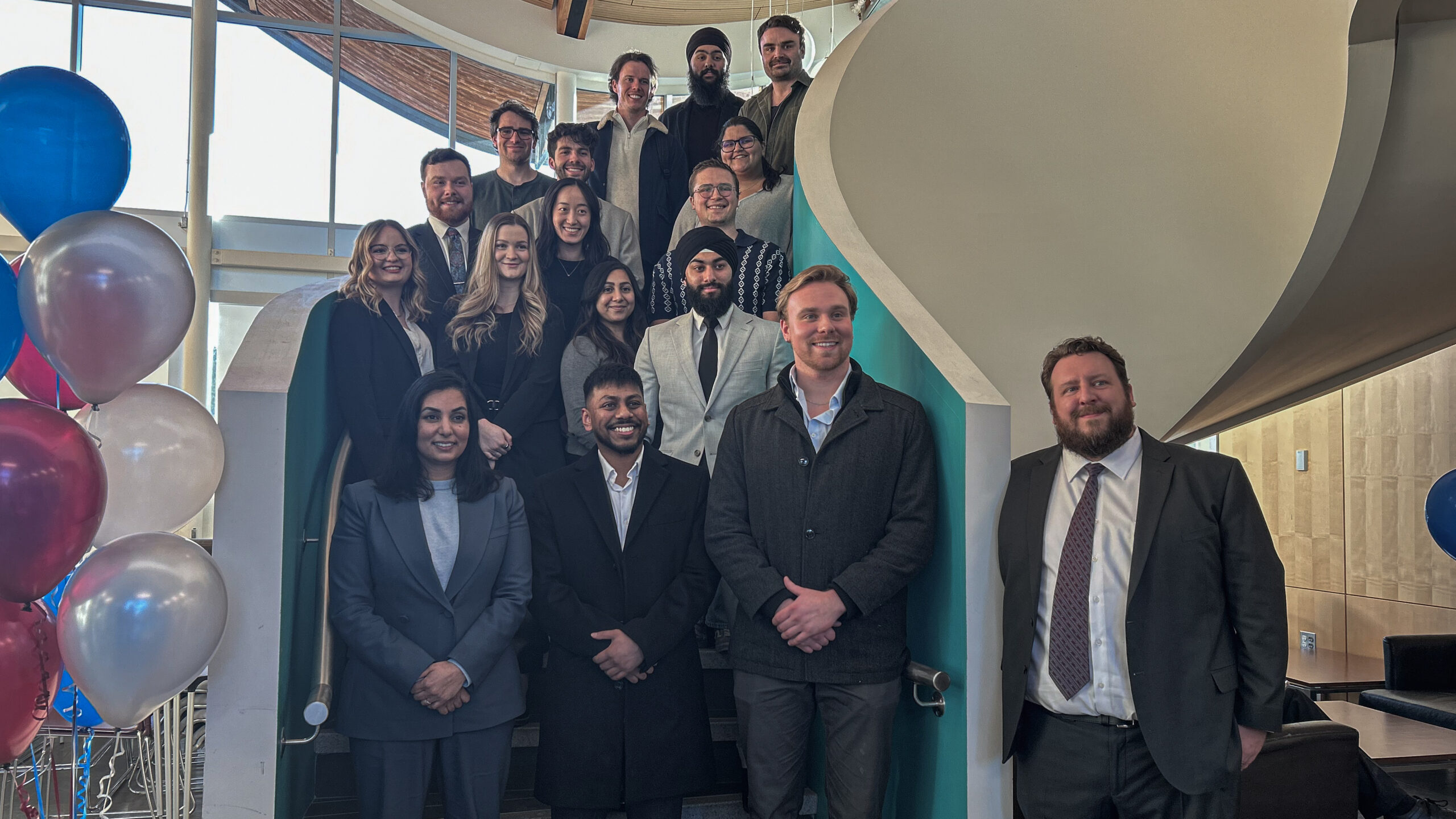Niki Sharma, B.C.’s attorney general and deputy premier, hosted a meet and greet on Feb. 6, organized by the Faculty of Law.
Sharma has been working as a lawyer in B.C. since 2005, beginning her career with a focus on indigenous rights. Throughout her career, she has represented residential school survivors and advocated for reconciliation, climate justice and anti-racism. In 2020, she was elected Member of the Legislative Assembly for the Vancouver-Hastings electoral district. Two years later, she ascended to the position of Attorney General of British Columbia after being appointed by Premier David Eby, becoming the first woman of South Asian descent to hold that position.
The meet and greet presented TRU students interested in law with the opportunity to speak with an established career lawyer and politician.
The event kicked off at 3 p.m. Despite the podium set-up, Sharma elected to sit with the students and answer their questions on a more personable level. Issues ranging from the toxic drug and the housing crisis to artificial intelligence and misinformation were broached during the session.
When asked for her advice on how students should shape their career paths as prospective lawyers, Sharma encouraged them to remain prepared for new opportunities while never losing sight of their core values.
“It’s a really exciting time to get into law,” Sharma said. “Everybody goes to law school for a different reason, and my advice would be to hold on to that reason.”
Her journey into legal politics was unprecedented, she said. Initially focused on aboriginal law, Sharma had never imagined she would one day become the Attorney General of B.C.
“So, I wouldn’t say I have a magic path I walked down,” Sharma said. “But it’s true that, at the beginning, I always wanted to be around people that inspired me and I could learn from. That was the anchor that got me to where I am today.”
As opportunities came, Sharma took them on with confidence. However, her goal to safeguard Indigenous rights and promote equality for all across B.C. never wavered.
In fact, Sharma has recently facilitated the opening of a new Indigenous Justice Centre here in Kamloops—one of several built across B.C. in the past two years.
“That was really exciting,” Sharma said of the new centre. “We started this project a few years ago, and the goal was to set up Indigenous Justice Centres across the province. Because we know that Indigenous people are overincarcerated. We’ve got all fifteen of them open now, so I’m looking forward to how that transforms that part of the justice system.”
As Attorney General, Sharma has also taken strides in investigating the ways sexualized violence and racism pervade the legal system and how these issues can be resolved.
“I think it’s appalling that so few people come forward with those complaints and that the system doesn’t handle them very well,” Sharma said. “I think it’s disturbing, this whole attack on DEI that’s happening. In my role, I feel like [equity] is important. A lot of what I see my work as is creating a fairer society.”
Beyond social issues, Sharma also touched on the technological developments of the past few years and the resulting legal grey areas.
“There’s so much work to do in the technology space,” Sharma said. “I think about this area a lot; about how inadequate a lot of our legal tools are. These issues actually cause harm to society, whether it’s our elections, societal discourse, or individual harms like sexploitation. It’s kind of the wild west right now, a time before laws stepped in.”
“I think there’s something really interesting about figuring out what democracy looks like in [the technology space],” Sharma added. “And how we take back the space for the people. How we can structure things in a way that’s in the public interest, instead of leaving it to for-profit entities that are just, in a lot of ways, doing harm.”
Recalling her last campaign experience, Sharma describes knocking on the doors of B.C. citizens and being faced with a worrying rise of paranoia and conspiracy theorists. Most of which, she said, were fueled by social media and the internet.
“We can’t lose faith in the institutions,” Sharma said. “Because once you do—once you completely lose faith that anyone is working to protect you—we’ve lost you completely.”
“ We focus too much on our differences instead of what we have in common,” she continued. “And those social media platforms do that on purpose. So we’re being driven away from each other for profit.”

